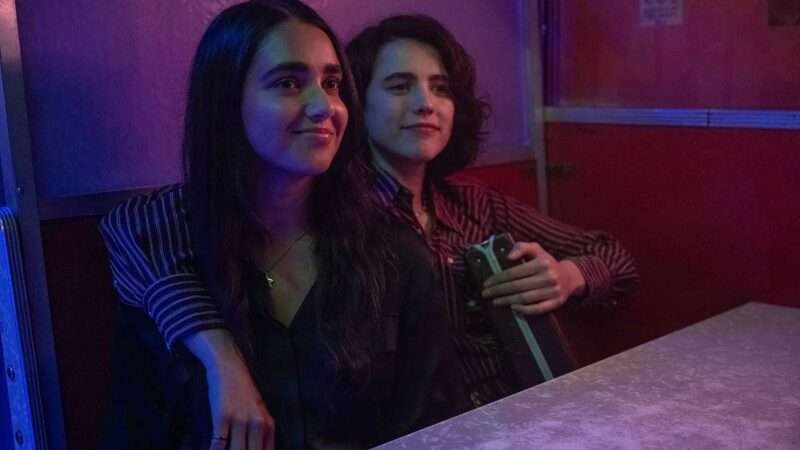
For much of their decadeslong career, filmmaker brothers Joel and Ethan Coen specialized in what might be called cartoon noir: Pictures like Blood Simple, Raising Arizona, Fargo, and Burn After Reading mixed painterly riffs on shopworn Hollywood thriller tropes with a flat-out silly Merrie Melodies sensibility. These movies were murderous—and hilarious.
The duo also took regional specificity seriously, or at least with sharply observed comic depth: Their movies were set in highly exaggerated versions of specific places at specific times, with special attention paid to local customs and folkways, and the odd characters who bummed around America's amusing local scenes.
This sort of existential, hyperviolent-yet-comic movie was all the rage in the world of 1990s indie filmmaking—see 2 Days in the Valley—and most of the entrées in the genre offered weak imitations of the Coen brothers' style. The magic of the Coen brothers was the ability to elegantly balance these disparate components. Somehow they all cohered into something approaching a worldview, or at least some very good movies.
Drive-Away Dolls, director and co-writer Ethan Coen's first narrative feature without his brother, aims for a similar blend of tone and elements: It's a noir-ish lesbian road movie set on the American East Coast in the late 1990s. There's a quirky comic vibe, a tour of a particular slice of America, and, yes, a murder or three. It's all very familiar, and in moments it almost comes together. But despite these moments, there's a flatness and even a tiredness to the proceedings, as the film circles gags and scenarios the Coens have done better when working together.
The movie begins in Philadelphia at the tail end of 1999, when an anxious man in a bar (Pedro Pascal) carrying a distinctive-looking briefcase is murdered in an alley outside a bar. The scene, probably the best in the movie, is a classic Coen brothers–style setpiece. It's shot like an especially goofy homage to black-and-white noir, with heavy shadows and exaggerated facial expressions that practically pause to wink at the audience. It's so elaborate, so cartoonish, Tex Avery and Friz Freleng would be jealous.
The movie is less successful, however, when it jumps across the city to a pair of 20-something friends, Jamie and Marian (Margaret Qualley and Geraldine Viswanathan), who, after some introductory hijinks, end up on a road trip in a beat-up car headed down the East Coast. They've acquired the car via a "driveaway" service, in which their job is to deliver the car to Tallahassee, Florida. But it turns out the car has an unusual package in the back—the case from the opening scene—and there are powerful actors out to get it back.
Mostly this is an excuse for Jamie and Marian to take a shaggy, ironic tour of America's I-95 corridor during the tail end of the Clinton era, viewed through the lens of the era's unsettled gay culture: Jamie has just broken up with her girlfriend, and the two stop at lesbian bars along the way while heading for an inevitable romantic entanglement. Yet there's bigotry in the air, in the form of ubiquitous highway billboards for a family values senator played by Matt Damon. Meanwhile, the pair are chased by a couple of shady, intermittently violent characters, Arliss and Flint (Joey Slotnick and C.J. Wilson), overseen by their slick boss, Chief (Colman Domingo).
If this sounds like exactly the sort of loopy, scattered premise that the Coen brothers specialized in bringing together—well, yes, it does. But the lone Coen brother, who co-wrote the script with Tricia Cooke, struggles to put the pieces together: The discursive comic dialogue comes out flat and psuedo-quirky; the blend of comedy and violence feels like a tic; the constantly arguing bad guys play like second-rate ripoffs of the Steve Buscemi/Peter Stormare hitman duo from Fargo. There's a should-be-interesting attempt to view the gay culture of the late '90s East Coast as another distinctive American scene, a quirky little subculture to be explored and gently caricatured while acknowledging the right-wing, socially conservative politics of the era. But the movie's reflexively snarky posturing and penchant for ha-ha randomness means it struggles to land a point.
All too often, Drive-Away Dolls plays like a parody of a Coen brothers movie, an outdated homage by an especially talented copycat. It's a '90s throwback alright—not to the Coen brothers' best work, but to the procession of imitators who took their cues from the brothers. Drive away, drive away.
The post <i>Drive-Away Dolls</i> Is an Underwhelming Lesbian Noir appeared first on Reason.com.


.png?w=600)




